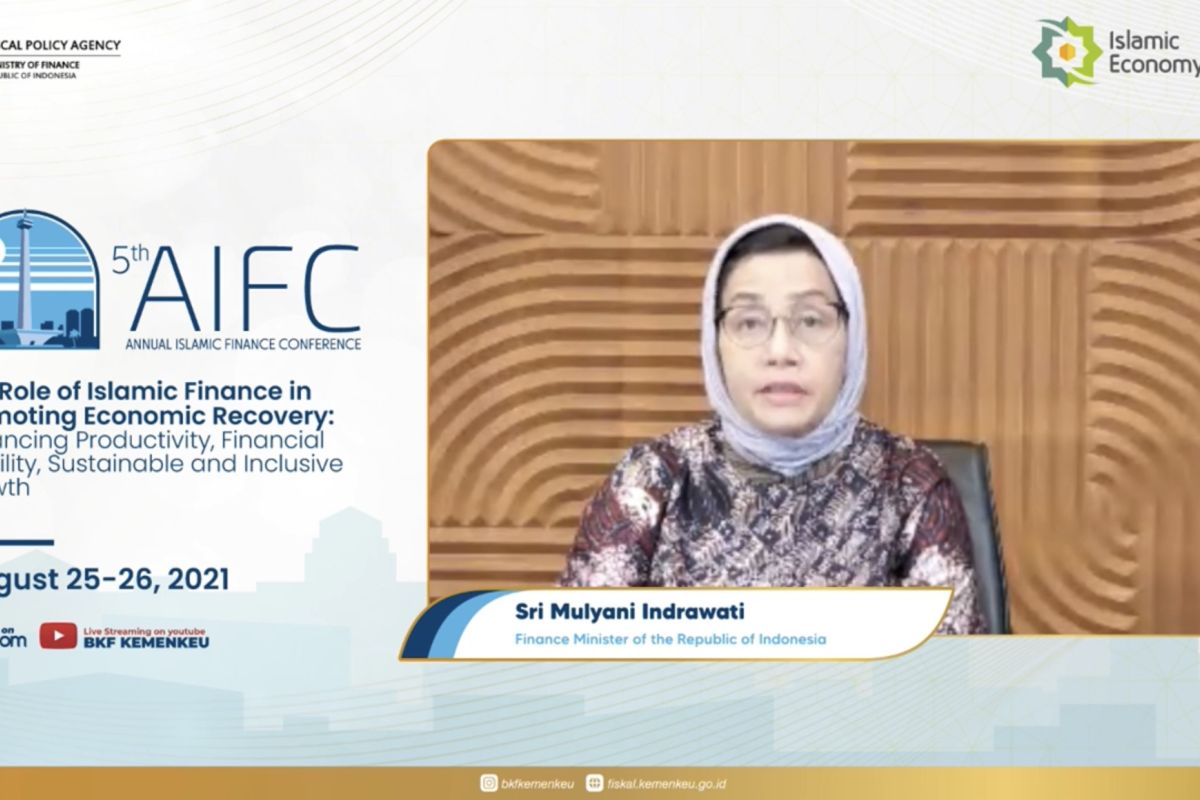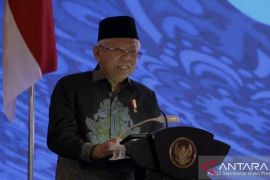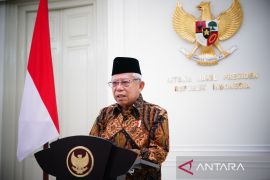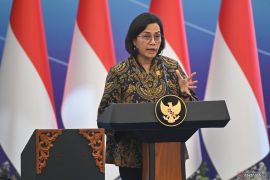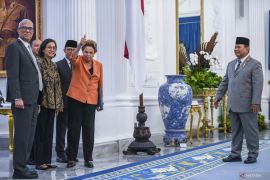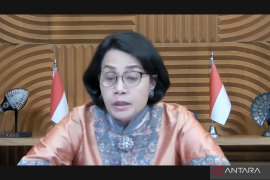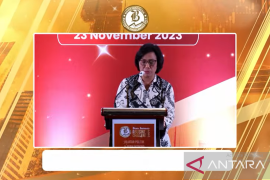It is necessary to note that the number of sharia bond-funded projects between 2013 and 2021 reached 3,447.Jakarta (ANTARA) - Sharia finance is a key element for creating economic stability, particularly amid the COVID-19 pandemic, Finance Minister Sri Mulyani Indrawati has said.
In the past decade sharia finance has been one of the fastest growing sectors in the global financial industry and has even grown ahead of the conventional financing market, she noted at the Annual Islamic Finance Conference (AIFC) held in Jakarta on Wednesday
Quoting the 2020 global sharia economic report, she said sharia financial assets rose by 13.9 percent to US$2.88 trillion in 2020 from US$2.52 trillion in 2019.
In contrast to the earlier expectation of sharia financial assets remaining stagnant due to the pandemic, many now believe the sharia economy will rebound to reach US$3.69 trillion by 2024, she said.
Related news: Sharia economy progressing well, growing promisingly: VP Amin
Sharia finance has also consistently recorded positive growth not only in Indonesia, but also the rest of the world, the minister noted.
In March 2021, Indonesian sharia banks’ financial assets grew 15.6 percent, Indrawati pointed out. In total, the financial assets of domestic sharia banks reached Rp598.2 trillion as of May 2021, she said.
“This proves that the performance of sharia banks is far better than that of conventional banks,” she remarked.
In addition, the number of investors in the sharia capital market also rose 9.3 percent in the first three months of 2021, while outstanding Indonesian sharia bonds (sukuk) reached Rp1,076 trillion as of June 2021, she said.
“This means that it grows 10.75 percent every year and is expected to continue to grow in future,” she said.
Indonesia is currently listed as the world’s largest sharia bond issuer, accounting for 23.11 percent of the outstanding global sharia bonds valued at US$23.65 billion, Indrawati disclosed.
Related news: Sharia economy main pillar of economic recovery: Finance Minister
“It is necessary to note that the number of sharia bond-funded projects between 2013 and 2021 reached 3,447,” she said.
Growing sharia finance, coupled with technology, has added to economic stability, she observed. As of June 2021, the total assets of sharia fintech in Indonesia reached Rp134 billion, she noted.
The figure represents just 3 percent of fintech’s total assets in the country, the minister said.
Related news: Sharia economic potential to be driving force of economic growth: Amin
However, she said she believed the figure has the potential to grow larger and at a faster pace than expected since sharia fintech has increased more than fiftyfold in just the past 2.5 years.
According to the 2021 global sharia financial report, Indonesia is one of the largest countries in terms of the market size of sharia fintech transactions, valued at US$2.9 billion in 2020, after Saudi Arabia (US$17.9 billion), Iran (US$9.2 billion), the United Arab Emirates (US$3.7 billion) and Malaysia (US$3 billion).
Related news: Food price stability momentum to strengthen MSMEs: BI
Related news: Indonesia's economic growth higher than South Korea, Vietnam: minister
Translator: Astrid Faidlatul H, Suharto
Editor: Fardah Assegaf
Copyright © ANTARA 2021
